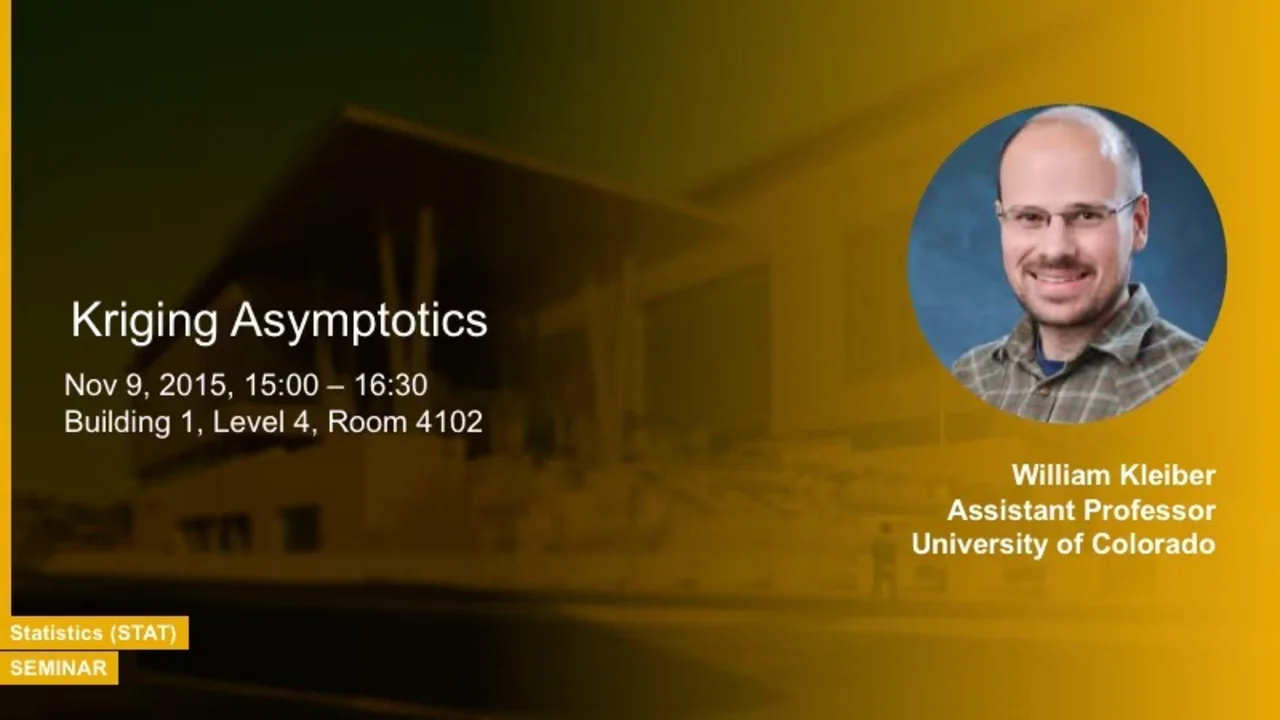
Kriging Asymptotics
B1 L4 R4102
Spatial analyses often focus on spatial smoothing using the geostatistical technique known as kriging. Theoretical results regarding large sample convergence rates of kriging predictors remain elusive. By casting kriging as a variational problem, we develop an equivalent kernel approximation technique that can also lead to computational feasibility for large data problems.
Overview
Abstract
Spatial analyses often focus on spatial smoothing using the geostatistical technique known as kriging. Theoretical results regarding large sample convergence rates of kriging predictors remain elusive. By casting kriging as a variational problem, we develop an equivalent kernel approximation technique that can also lead to computational feasibility for large data problems. For multiresolution process models, the equivalent kernel takes on a particularly simple form which allows for detailed asymptotic calculations. We derive optimal asymptotic convergence rates and discuss predictive implications of model misspecification.
Brief Biography
Will Kleiber is an Assistant Professor in the Department of Applied Mathematics at the University of Colorado at Boulder. Will received his PhD in Statistics from the University of Washington in 2010, and between 2010-2012 was a postdoctoral researcher at the National Center for Atmospheric Research. His research is largely at the intersection of spatial statistics and geophysical problems. His recent focus has been on methodological and theoretical developments for spatial analyses of large datasets, introducing new approaches for physical model calibration and validation, and advancing statistical methods for stochastic weather generators.